Baseball on the Silver Screen
New book examines Hollywood's longtime fascination with the national pastime
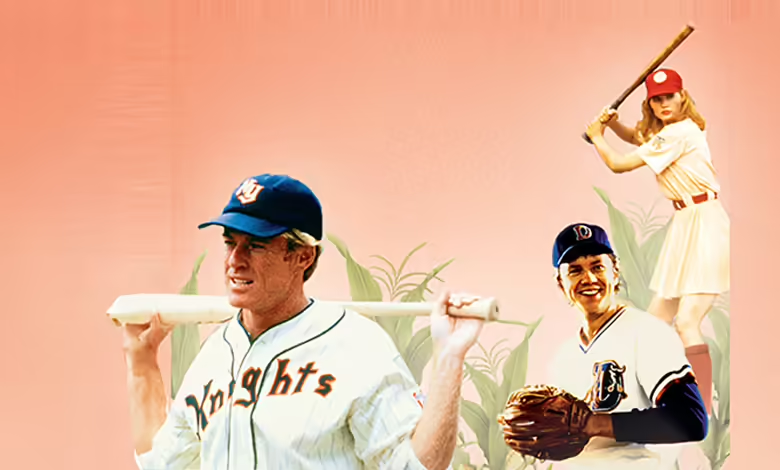
Baseball is a form of unscripted theater. The so-called “show” has inspired Hollywood for over a century.
Whether it’s the story of Yankee legend Lou Gehrig (1942’s “The Pride of the Yankees”) or the story of mythical hero Roy Hobbs (1984’s “The Natural”), the national pastime has served as fodder for both drama and comedy through the years.
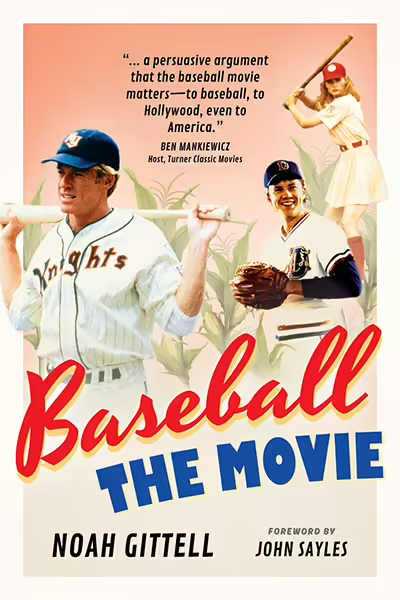 “There’s something inherently cinematic about the game,” said author Noah Gittell. “It’s three-dimensional in ways that other sports are not.”
“There’s something inherently cinematic about the game,” said author Noah Gittell. “It’s three-dimensional in ways that other sports are not.”
Gittell explores this film genre in his new book, “Baseball: The Movie“. In particular, he examines how these films have reflected the era in which they were filmed.
“The Pride of the Yankees,” for example, tells the story of Lou Gehrig’s tragic demise and serves as a metaphor for wartime sacrifice, he said.
“When you look at the first real cluster of baseball movies that came during World War II and in the years following the war, they all reflect something about that experience,” Gittell said. “You have a young man cut down in the prime of his life, dying with dignity. We watch his wife and his parents process that, and this was a film made while we were on the eve of that war.”
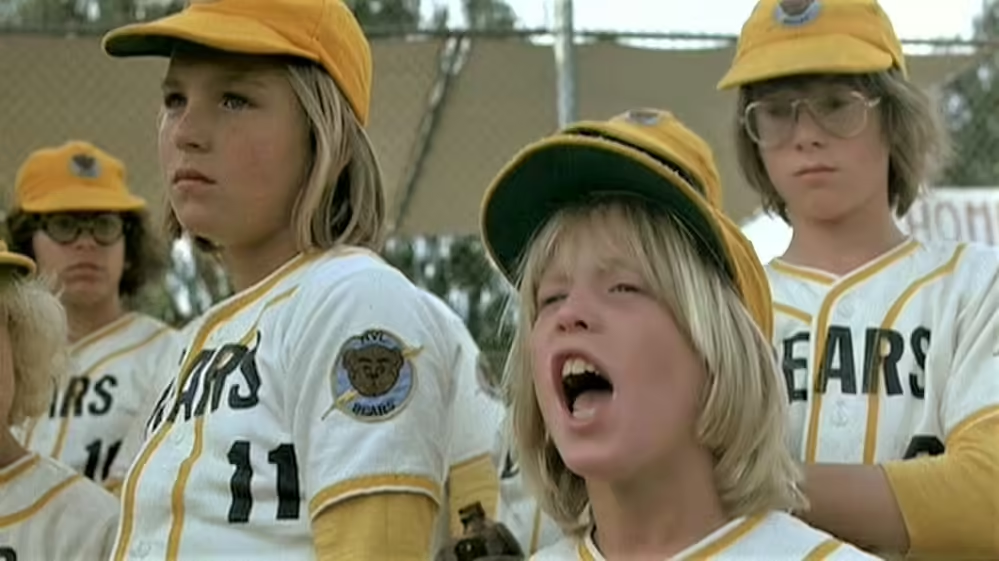
While baseball films of the 1940s generally approached the game with reverence, later films took a more cynical view. Take “The Bad News Bears,” for instance.
“There’s also a real underdog story deep in its bones,” Gittell said. “It’s a film about people of various races and genders and backgrounds coming together and defeating the Yankees – the most-hated team in baseball – on the field of play, and that also speaks to sort of an anti-establishment mindset.”
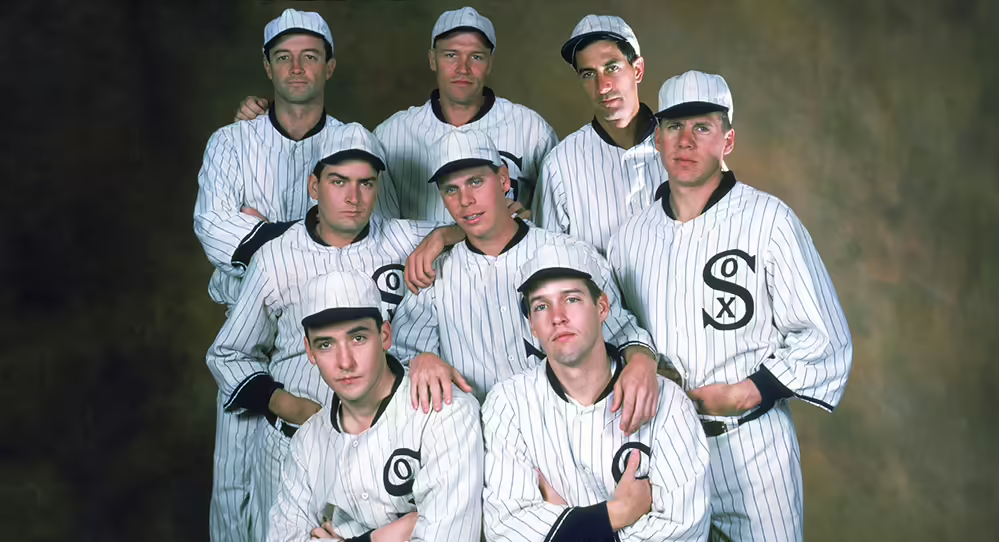
The genre experienced something of a renaissance in the 1980s and early 1990s, with films like “The Natural” and 1989’s “Field of Dreams.” Those two, he said, reflect the optimism of the Reagan era. On the other hand, John Sayles’ “Eight Men Out,” from 1988, takes a more cynical pro-labor view as it tells the story of the so-called “Black Sox” scandal of 1919.
“[Sayles] actually wrote ‘Eight Men Out’ in the ‘70s, so it does feel in a way like more of a ’70s film,” Gittell said. “He saw it as sort of in the same spirit as ‘All the President’s Men,’ another movie about a conspiracy, and that was what he was sort of going for.”
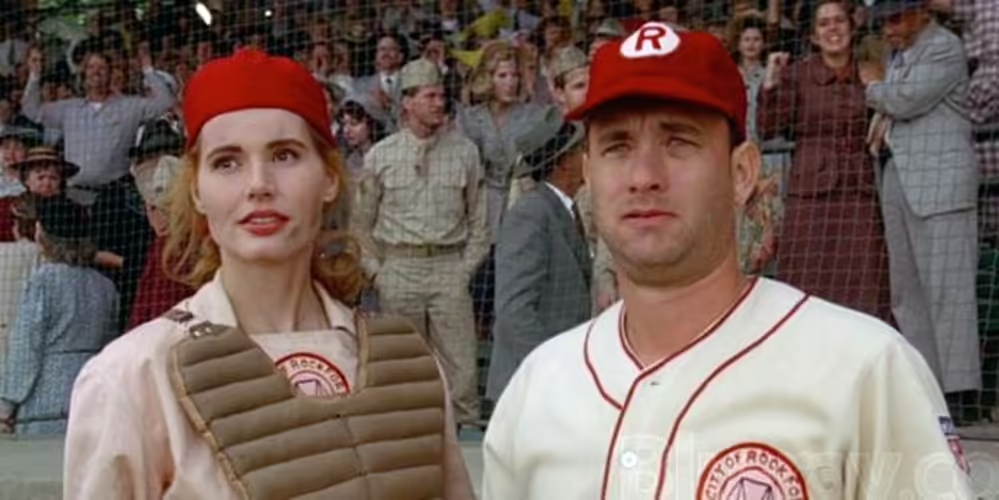
It’s safe to say that Gittell knows this genre: He’s sat through over 80 of these films and ranked them on Letterboxd. He places 1992’s “A League of Their Own” – which tells the story of a women’s baseball league – at the top of the standings.
“It’s such a fantastic summer film,” he said. “It’s funny, and it’s sad, and it’s character-driven. And it has great baseball scenes. It has great dramatic scenes. It has everything. It has advanced sequences. It has Madonna.”
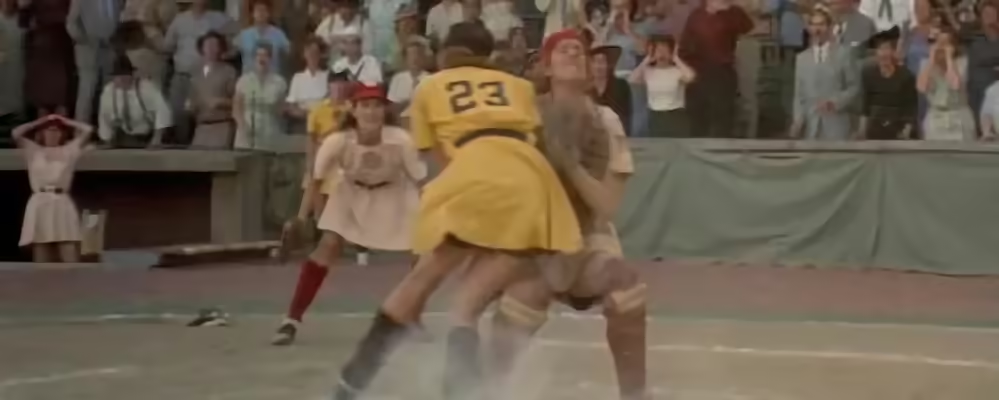
It also has an ending that Gittell calls a “fantastic unanswered question”: Did Dottie Hinson (Geena Davis) drop the ball intentionally to let her sister Kit Keller (Lori Petty) score the game-winner after a home-plate collision? There are things that both sides of the argument can point to as evidence.
“People debate and argue about it to this day over 30 years after the film was made,” he said. “That’s not just fun; it’s important because it shows that baseball movies can have an impact on people.”
As for the worst baseball movie Gittell has seen? He referred to his Letterboxd list for that answer, but he also made a point to single out 1996’s “Ed,” which features “Friends” star Matt LeBlanc and a chimp that plays third base.
“I don’t devote a chapter to ‘Ed.’ But in the book, I take every opportunity to mention it as a terrible film,” he said.
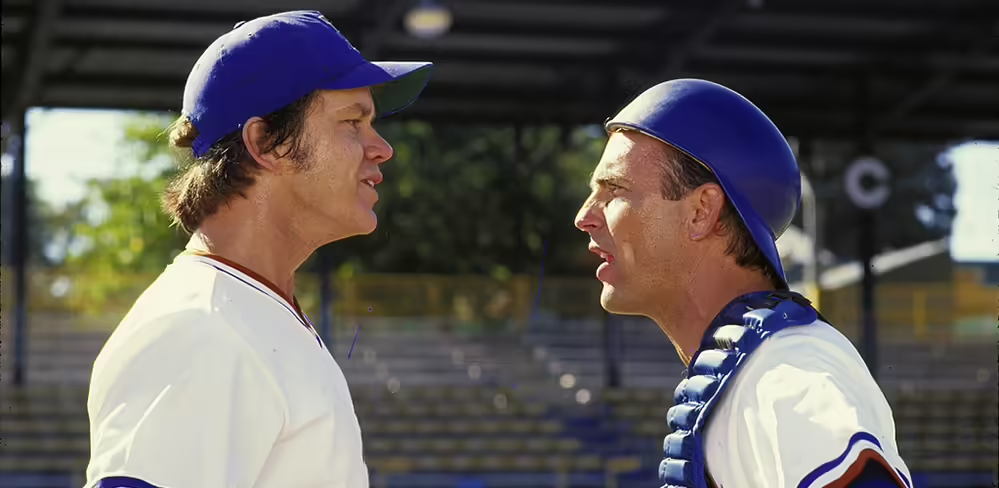
Making a movie about The Great Game requires a degree of authenticity, not only in the gameplay but also in the culture surrounding it. And when it comes to authenticity, Gittell says 1988’s “Bull Durham” nails it. That has much to do with the fact that it was written and directed by a former minor leaguer, Ron Shelton.
“It teaches you the lingo of the game. It shows you what happens in the dugout, the clubhouse, and the mound visit,” Gittell said. “These were some of the great secrets of the game up until this point, and Shelton unveiled all of that for us.”
While evangelical filmmakers have kept the genre alive more recently, mainstream Hollywood has not. And with football more popular than the national pastime, some might question whether the genre is ready for retirement.
But Gittell believes it is not washed up, and he has his own “pitch” for the game’s Hollywood comeback. It centers on an international tournament that’s played every few years.

“The World Baseball Classic is so full of great stories,” Gittell said. “You have young guys playing for their home countries against major leaguers. You’ve got guys who have aged out of (Major League Baseball), but they’re still trying to prove that they have something left in the tank. You have first-time managers trying to prove that they’re good at that job, and it ended last time with the two greatest players in the world (Shohei Ohtani and Mike Trout) facing off against each other.”
Gittell also sees movie-making potential in how the growing trend of legalized sports betting impacts baseball. Just this year, one ballplayer has been banned from the game for gambling, and an umpire has been disciplined for violating gambling rules.
“I think there’s great opportunity there because it is such a huge part of baseball’s history,” Gittell said. “To tell an old story that has relevance today or a new story that harkens back to some of these older stories,” he said.
“I wouldn’t be surprised if the next great baseball movie is about gambling.”





